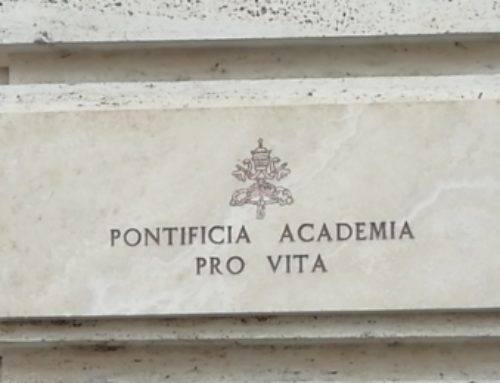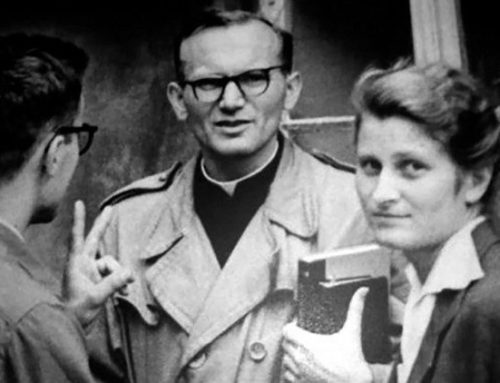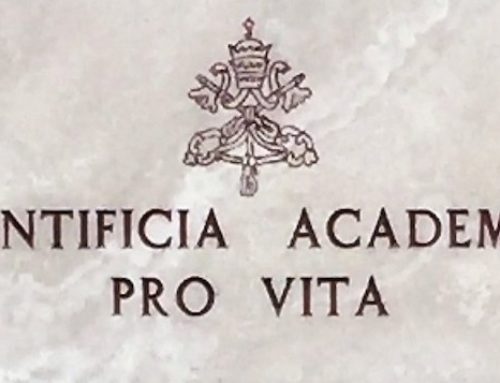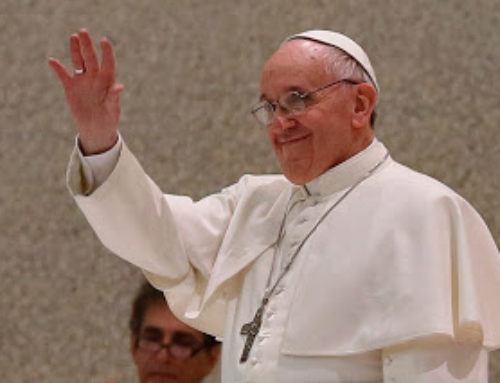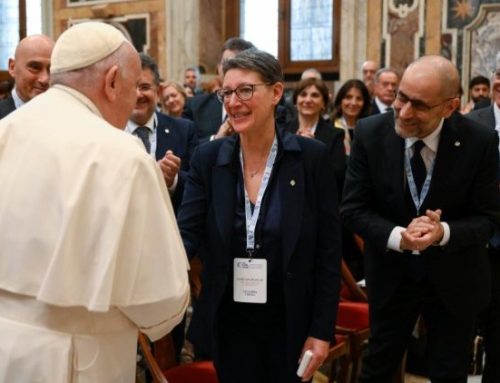Here is a ZENIT translation of the Pope’s address today the Pontifical Academy for Life.
__
Dear Brothers and Sisters,
I welcome you all, gathered for the General Assembly of the Pontifical Academy for Life. I am especially pleased to meet Cardinal Sgreccia, always standing, thank you! These days will be dedicated to the study of the virtues in the ethics of life, a subject of academic interest, which addresses an important message to contemporary culture: the good that man does is not the result of calculations or strategies, nor is it the product of the genetic order or of social conditionings, but it is the fruit of a well disposed heart, of the free choice that tends to true good. Science and technology are not enough: to do good, wisdom of the heart is necessary.
Sacred Scriptures says to us in different ways that good or bad intentions do not come into man from outside, but they flow from his “heart.” “From within — Jesus affirms — out of the heart of man, come evil thoughts” (Mark 7:21). In the Bible, the heart is the organ not only of the affections, but also of the spiritual faculties, the reason and the will. It is the seat of decisions, of the way of thinking and acting. The wisdom of the choices, open to the movement of the Holy Spirit, also involves the heart. From here good works are born, but also mistaken ones, when the truth and suggestions of the Spirit are rejected. The heart, in sum, is the synthesis of humanity molded by the very hands of God (Cf. Genesis 2:7) and gazed at by its Creator with unique satisfaction (Cf. Genesis 1:31). God pours His very wisdom into man’s heart.
In our time, some cultural orientations do not recognize the mark of divine wisdom in the created realities and not even in man. Thus human nature remains reduced only to matter, to be shaped according to any design.
Instead, our humanity is unique and so precious in God’s eyes! Therefore, the first nature to protect, so that it will bear fruit, is our own humanity. We must give it the clean air of freedom and the vivifying water of truth; protect it from the poisons of egoism and lies. Then, on the terrain of our humanity, a great variety of virtues will be able to flower.
Virtue is the most authentic expression of the good that man, with God’s help, is able to realize. “It allows the person not only to perform good acts, but to give the best of himself” (Catechism of the Catholic Church, 1803).Virtue is not a simple habit; it is the constantly renewed attitude to choose the good. Virtue is not emotion, it is not an ability that is acquired with an refresher course, and least of all a biochemical mechanism, but it is the loftiest expression of human freedom. Virtue is the best that man’s heart offers. When the heart moves away from the good and from the truth contained in the Word of God, it runs so many dangers, it remains deprived of orientation and risks calling good evil and evil good; virtues are lost, sin takes over more easily, and then vice. One who fuels this slippery slope falls into moral error and is oppressed by a growing existential anguish.
Sacred Scripture presents to us the dynamic of the hardened heart: the more the heart is inclined to egoism and evil, the more difficult it is to change. Jesus says: “Every one who commits sin is a slave to sin” (John 8:34). When the heart is corrupted the consequences are grave for social life, as the prophet Jeremiah reminds. I quote: “You have eyes and heart only for your dishonest gain, for shedding innocent blood, and for practicing oppression and violence” (22:17). This condition cannot change either in virtue of theories, or by the effect of social or political reforms. Only the work of the Holy Spirit can reform our heart, if we collaborate: God Himself, in fact, has assured His effective grace to one who seeks Him and is converted “with all his heart” (Cf. Galatians 2:12 ff.). Today there are many institutions committed to the service of life by way of research and of assistance; not only do they promote good actions but also a passion for good. However, there are also so many structures more concerned with economic interest than the common good. To speak of virtue means to affirm that the choice of the good involves and commits the whole person; it is not a “cosmetic” question, an external embellishment, which will not bear fruit: in the ambit of the ethics of life it is also about uprooting dishonest desires from the heart and of seeking the good with sincerity. Also in the ambit of the ethics of life, the necessity of norms, which confirm respect of persons, are not enough on their own to fully realize man’s good. It is the virtues of one who works in the promotion of life that are the ultimate guarantee that the good will really be respected. Today scientific knowledge and technical instruments are not lacking to be able to offer support to human life in situations in which it is weakest. But humanity is so often lacking. Good action is not the correct application of ethical wisdom, but it presupposes a real interest in the fragile person. The doctors and all health workers never fail to combine science, technology and humanity.
Therefore, I encourage the Universities to consider all this in their programs of formation, so that the students can mature those dispositions of the heart and mind, which are indispensable to receive and take care of human life, according to the dignity that belongs to it in any circumstance. I also invite the directors of health structures and of research to have their dependents consider human treatment also as an integral part of their qualified service. In every case, may those who dedicate themselves to the defense and promotion of life be able to show first of all its beauty. In fact, as “the Church does not grow by proselytism but ‘by attraction’” (Apostolic Exhortation Evangelii Gaudium, 14), so human life is defended and promoted effectively only when it is known and its beauty is shown. By living a genuine compassion and the other virtues, you will be privileged witnesses of the mercy of the Father of life.
Contemporary culture still keeps the premises to affirm that man, regardless of his conditions of life, is a value to protect; however, it is often victim of moral uncertainties, which do not enable it to defend life effectively. Not rarely then, it can happen that under the name of virtue, “splendid vices” are masked. Hence, it is necessary not only that virtues really inform the way of thinking and acting of man, but that they be cultivated through a continuous discernment and be rooted in God, source of every virtue. I would like to repeat here something I said several times: we must be alert to the new ideological colonizations that take over human thought, also Christian, under the form of virtue, of modernity, of new attitudes, but they are colonizations, namely, which take away freedom, and are ideological, that is, they are afraid of the reality as God has created it. Let us ask for the help of the Holy Spirit, so that He will draw us out of egoism and ignorance: renewed by Him, we can think and act according to God’s heart and show His mercy to one who suffers in body and spirit.
The wish I address to you is that the works of these days may be fruitful and accompany you and all those you meet in your service in a path of virtuous growth. I thank you and I ask you, please, not to forget to pray for me. Thank you.



